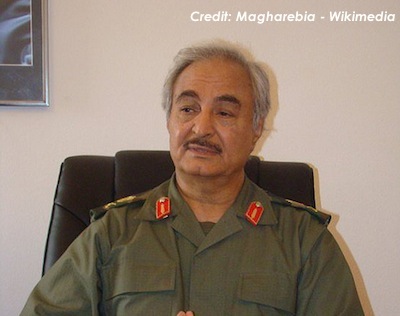Taking a break this week. We expect to return next Wednesday.
Author Archives: Bill Humphrey
Thailand: When is a coup not a coup?
 After six months of anti-democracy protesters trying to prevent elections, Thailand’s military has stepped in — but insists they are just preventing chaos, not overthrowing the government.
After six months of anti-democracy protesters trying to prevent elections, Thailand’s military has stepped in — but insists they are just preventing chaos, not overthrowing the government.
So: Where is the Thai military is going with their martial law announcement? They’re repeatedly saying (in domestic and Western media) that it’s not a coup, they’re declining to remove the leadership (for the moment), and they’re telling the opposition protesters to leave the streets.
But they could be telling them to leave because they got the coup they wanted. And they could be keeping the civilian leadership in place because they don’t need to remove them if they control everything anyway — especially since the elected prime minister has already been removed by the courts. And is martial law without civilian authorization a coup by definition?
Moreover, the military has seized power, according to the BBC, “at least” 11 times since 1932, which implies there have been a lot of these halfway coups. (The last official coup was in 2006 against the again-now ruling coalition.)
Meanwhile, the Bangkok Post says there have been 18 coups in eight decades, though they didn’t elaborate on how they counted. Even their experts seem a bit mystified as to what exactly is happening.
We’ll probably see more developments shake out in the coming hours and days that clarify what the plan is. But I’m not counting on the opposition protesters to leave the streets even with a partially friendly military also in the streets, because their goal is the indefinite suspension of democracy.
They probably won’t leave the streets unless the military either a) goes all the way and clearly takes power itself or b) is actually willing to fire on their own biggest civilian supporters and lose mass approval.
Update at 10:40 AM ET: A slight clarification on Tuesday from the military leadership — re-emphasizing that government workers should continue normally, that they want a political solution to be negotiated among the politicians, that there is no curfew, and that martial law will continue indefinitely until no longer needed (however that is determined). However, they also took control of television stations, shut down several satellite broadcasts on both sides of the political fracas, and restricted entry into the capital. The military also cited economic concerns, such as investor confidence, as a key reason for the coup. (Thailand’s tourism-heavy economy has struggled in the face of persistent unrest.)
GOP working hard to make sure Dems fully united in 2016
Screen capped this from the top of Google News yesterday. It’s a pretty good summary of where the Republican top brass is right now:

From the people who brought you an ancient, walking future health emergency with anger management issues as their nominee six years ago comes… rampant, idle, and sexist speculation based on nothing!
At the rate they’re going with these absurd attacks, even the Anti-Hillary Democrats will be willing to walk through a field of land mines to get to the voting booth to elect her in November 2016.
Renegade ex-general again attempts Libya coup
 Virginia’s finest rogue foreign officer is at it again in Tripoli, Libya this week, as he tries a second time this year to seize power in the country from which he was exiled from 1987-2011. This time he actually remembered to bring troops.
Virginia’s finest rogue foreign officer is at it again in Tripoli, Libya this week, as he tries a second time this year to seize power in the country from which he was exiled from 1987-2011. This time he actually remembered to bring troops.
About three months ago, Gen. Khalifa Hifter tried to overthrow the government of Libya without much success:
Former longtime Virginia resident and past/present Libyan military general Khalifa Hifter attempted to seize power in Libya on Friday, claiming he had suspended parliament and initiated a military takeover to put the country back on the right path. Then what happened?
What happened was that nobody showed up. So that coup went poorly. At least no one got killed in that effort.
But the ex-general (or current general, depending on whom you ask), who may have been a longtime CIA asset, bided his time and continued building up his personal army in the country’s major cities. In the last couple days, his forces stole military aircraft and launched a combined air-ground assault on an Islamist fighter base in Benghazi. Then, actual units of the Libyan military joined in for the hell of it, leaving the government in Tripoli to sputter in impotent rage about how he had not been authorized to conduct military actions (which is, of course, also true of every warlord’s personal army in the country at the moment, but that hasn’t stopped anyone). At least 70 people were killed in the unauthorized raid and 140 more were injured.
Finally today, after several recent weeks of unrelated internal upheaval in the transitional national government and a new prime minister (or three), this weekend former General Hifter has rolled back into town — literally — with a lot more mobile firepower and people. After some fighting near the largely empty buildings, he announced he was replacing the national parliament with his own emergency cabinet.
Gunfire rang out in streets surrounding the General National Congress complex in the capital, Tripoli, witnesses said, and the official LANA news agency said routes leading to it had been blocked by armed men with truck-mounted heavy weapons.
Frightened residents took to social media to report rocket fire in at least one area of the capital, and the road to the city’s international airport was closed. The Associated Press cited hospital officials saying the attack killed one person and wounded nine.
It was not clear whether any lawmakers were inside the parliament building at the time of the assault. LANA quoted one as saying most had left earlier after a session was adjourned, and other reports said the building had been nearly emptied after warnings of the coming attack. However, the website of the Libya Herald, an English-language newspaper, said seven lawmakers apparently had been captured by the assailants.
A spokesman for Khalifa Haftar, the former general, later appeared on television to say the assailants had assigned a 60-member constituent’s assembly to take over for parliament and that the current government would act on an emergency basis, the Associated Press reported.
It remains to be seen if the national parliament and cabinet will be able to fend off the armed insubordination — or if anyone even notices. Because as I noted in his last coup attempt, would anyone really even notice if he “seized power”?
In reality, it’s kind of absurd on its face that a general would try to stage a “coup” in Libya. Right now there barely is a Libya.
8mm film clip shows FDR walking at 1937 All-Star Game
Every so often, post-polio FDR made public appearances where he was standing or walking, with support — and in great pain. We know, for example, that his son helped walk him to the lectern in 1932 to become the first presidential candidate ever to accept the party’s nomination in person. But the above clip may be one of the few times captured on film — and possibly the largest number of people he ever walked in front of publicly.
The 8mm footage comes from the personal collection of former Major League Baseball player Jimmie DeShong, who apparently filmed it himself at the 1937 All-Star Game in Washington D.C. The media rarely even showed the president’s wheelchair, let alone his agonizing walking, although he tended not to conceal it when interacting with people in person in small settings. The film has just been donated to the state of Pennsylvania.
You can also see photos of his leg braces, wheelchair, and specially modified car — tools that he used to work with his disability — from the FDR Library website.
![]()
In Mass., Goldman wants in on prison profit stream
 Recently, in some states, Goldman Sachs has been issuing “social impact bonds,” a new financial instrument that purports to help cure social ills with Wall Street’s “help.”
Recently, in some states, Goldman Sachs has been issuing “social impact bonds,” a new financial instrument that purports to help cure social ills with Wall Street’s “help.”
In this case, they’re loaning $9 million to the state of Massachusetts to help support a Boston organization that tries to help young offenders from bouncing back into prison. (Reducing young recidivism is a good social goal, obviously, and would have a ripple effect on crime prevention.)
If the effort reduces the number of days past inmate spend back in prison — which would save the state money — the savings would go back to Goldman Sachs, up to a million dollars. If the effort really pays off (above and beyond the bond repayment terms), then the state would get to keep the money. Of course, if the effort doesn’t hit the minimum targets needed to generate enough savings, Goldman Sachs would still get interest payments on the bond, but would lose the principal loan ($9 million or however much of it couldn’t be repaid due to insufficient savings).
As private investments in the prison industry go, it’s not the worst thing in the world. At least the profit incentive is toward rehabilitation rather than toward further imprisonment in the way privatized prisons are. But the question is why is it even necessary to involve the private sector middleman in the first place?
The state could pay for the upfront cost of the program through tax revenues (if it were willing to raise taxes, of course), instead of taking a loan, it would keep all the money and not end up paying Wall Street no matter how things turn out. That money could be reinvested into expanding the successful efforts even more, thus benefiting all taxpayers.
In my opinion, the job of corrections and the rehabilitation of young offenders is part of the role of government. The private sector is free to help, but it should be an add-on to the process, not a redundant profit diversion mechanism in the middle.
Moreover, Goldman Sachs has a pretty notorious history of cooking the books (BBC video) to make money while temporarily making their loan recipient governments look like a success story until Goldman’s gotten all its money back.
And that’s not a good track record to have, going into this plan.
Arsenal For Democracy 84: Interview on Nigerian History
Topics: Nigeria, Michael Sam & Jason Collins. People: Bill, Nate, Greg, and guest historian Pilar Quezzaire.

Discussion Points:
– What is the significance and origin of the north-south divide in Nigeria? How did colonialism change the country? Who are the Boko Haram?
– Why “sharia law” is not a unique challenge. What could Nigeria be doing better to combat terrorism and unrest in the regions the Boko Haram dominate? Should the U.S. and Europe treat Boko Haram as part of a global terrorist network or more as a separate, localized problem?
– Arsenal for Nate and Greg Talking Sports: Michael Sam is drafted to the St. Louis Rams & Jason Collins has been playing for the Nets into the NBA playoffs.
Part 1 – Nigeria:
Part 1 – Nigeria – AFD 84
Part 2 – Sports: Sam / Collins
Part 2 – Sports: Sam/Collins – AFD 84
To get one file for the whole episode, we recommend using one of the subscribe links at the bottom of the post.
Subscribe
RSS Feed: Arsenal for Democracy Feedburner
iTunes Store Link: “Arsenal for Democracy by Bill Humphrey”
And don’t forget to check out The Digitized Ramblings of an 8-Bit Animal, the video blog of our announcer, Justin.
Podcast: Play in new window | Download
Subscribe: RSS


